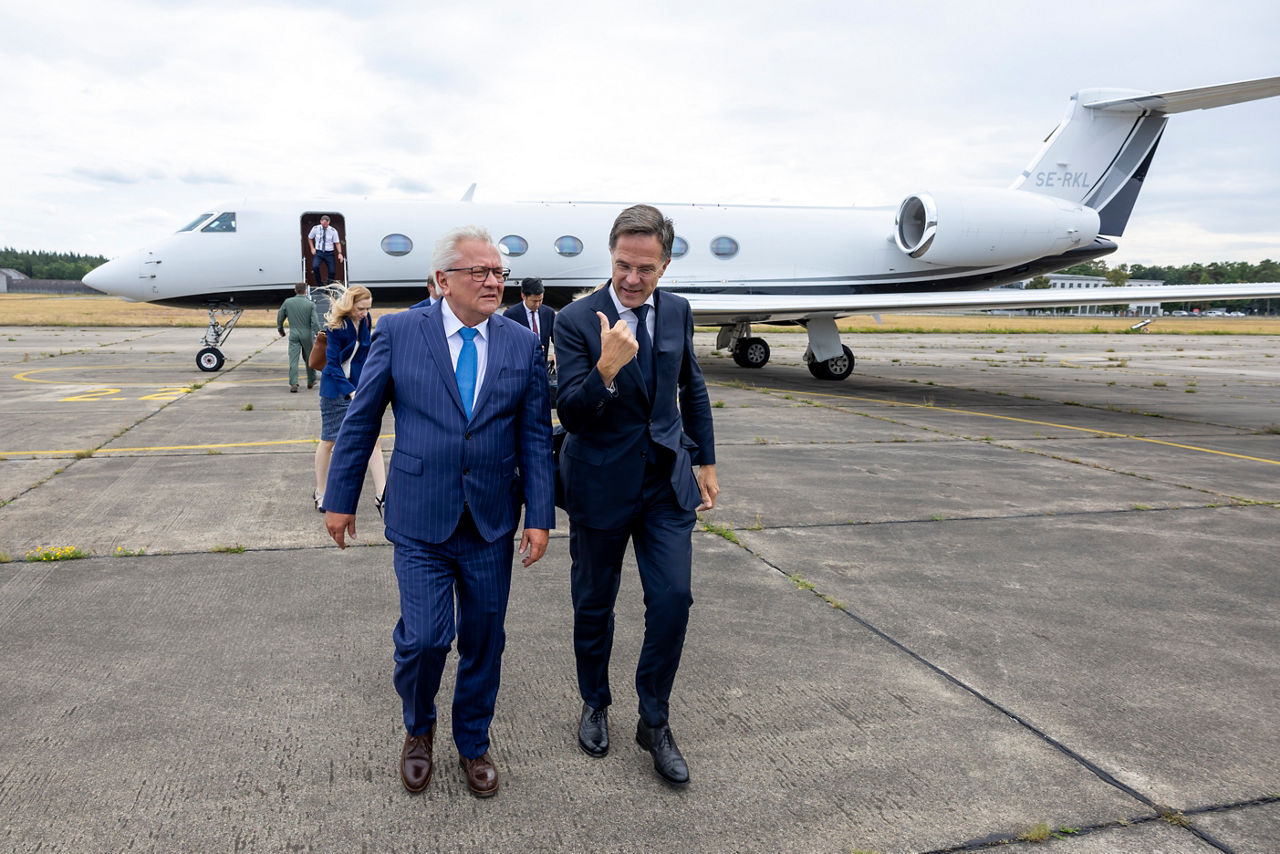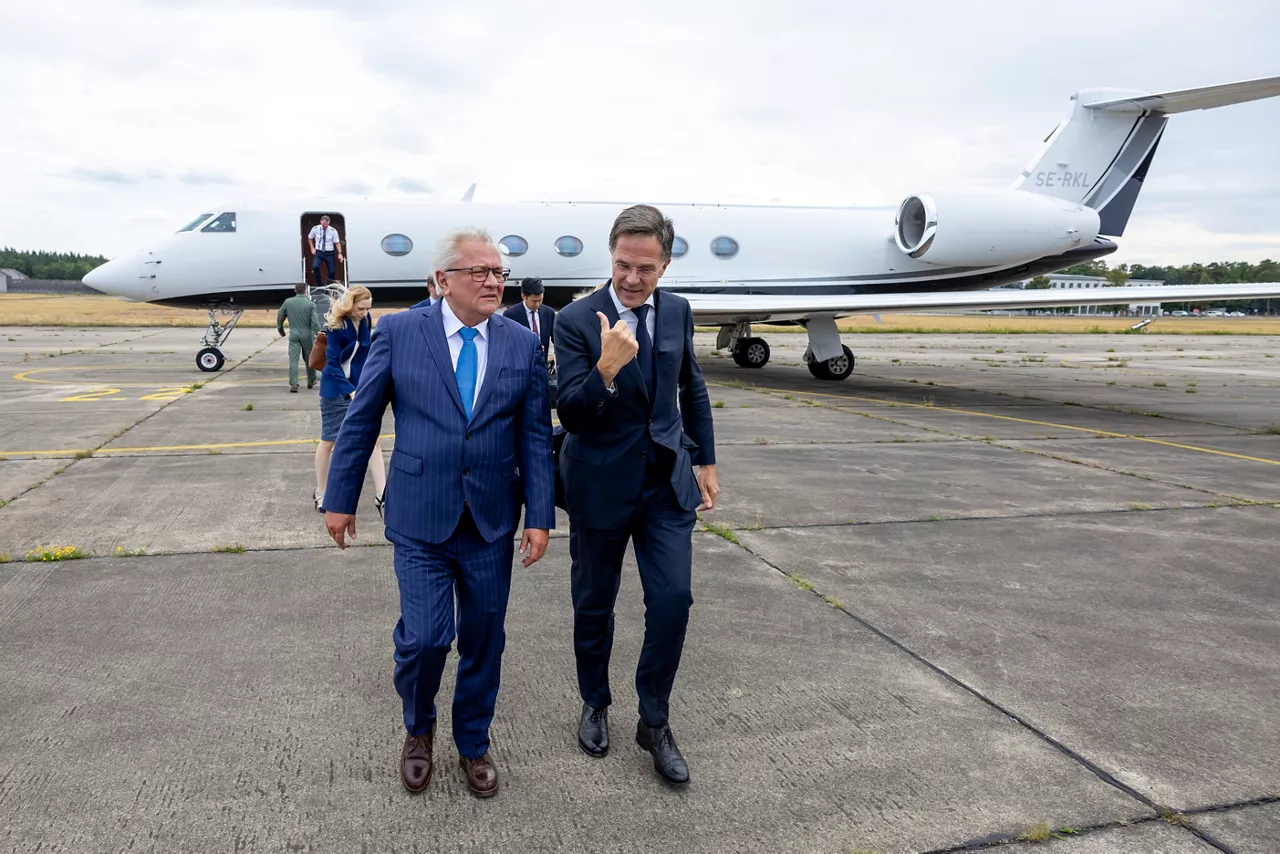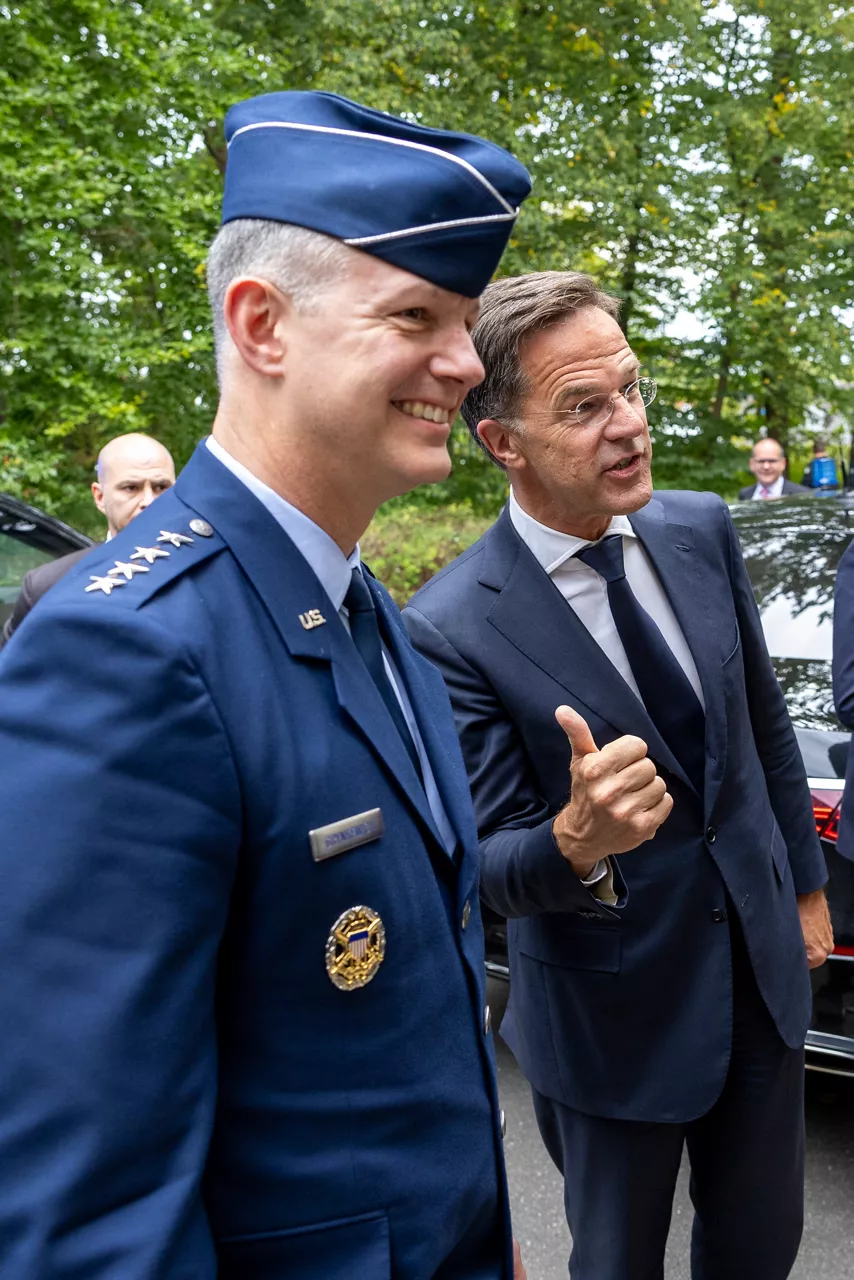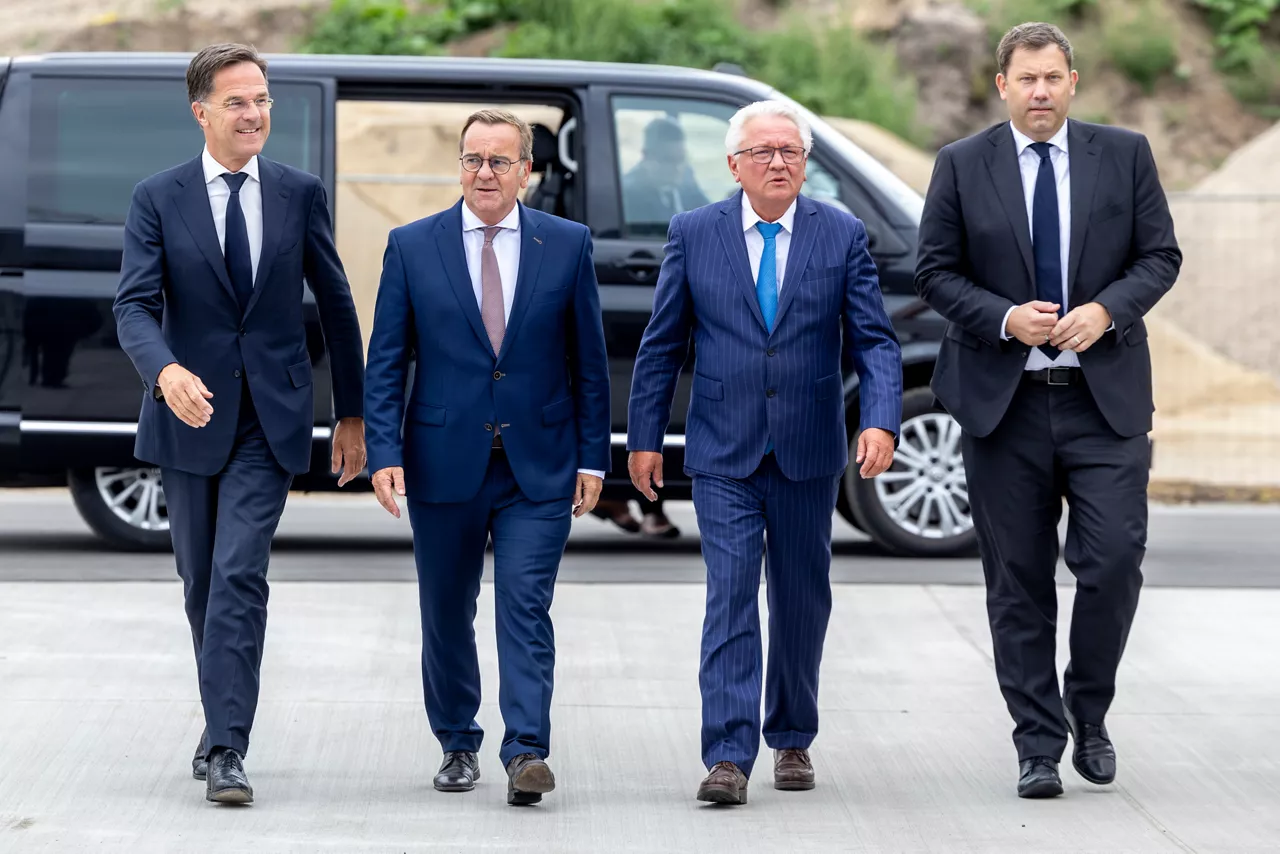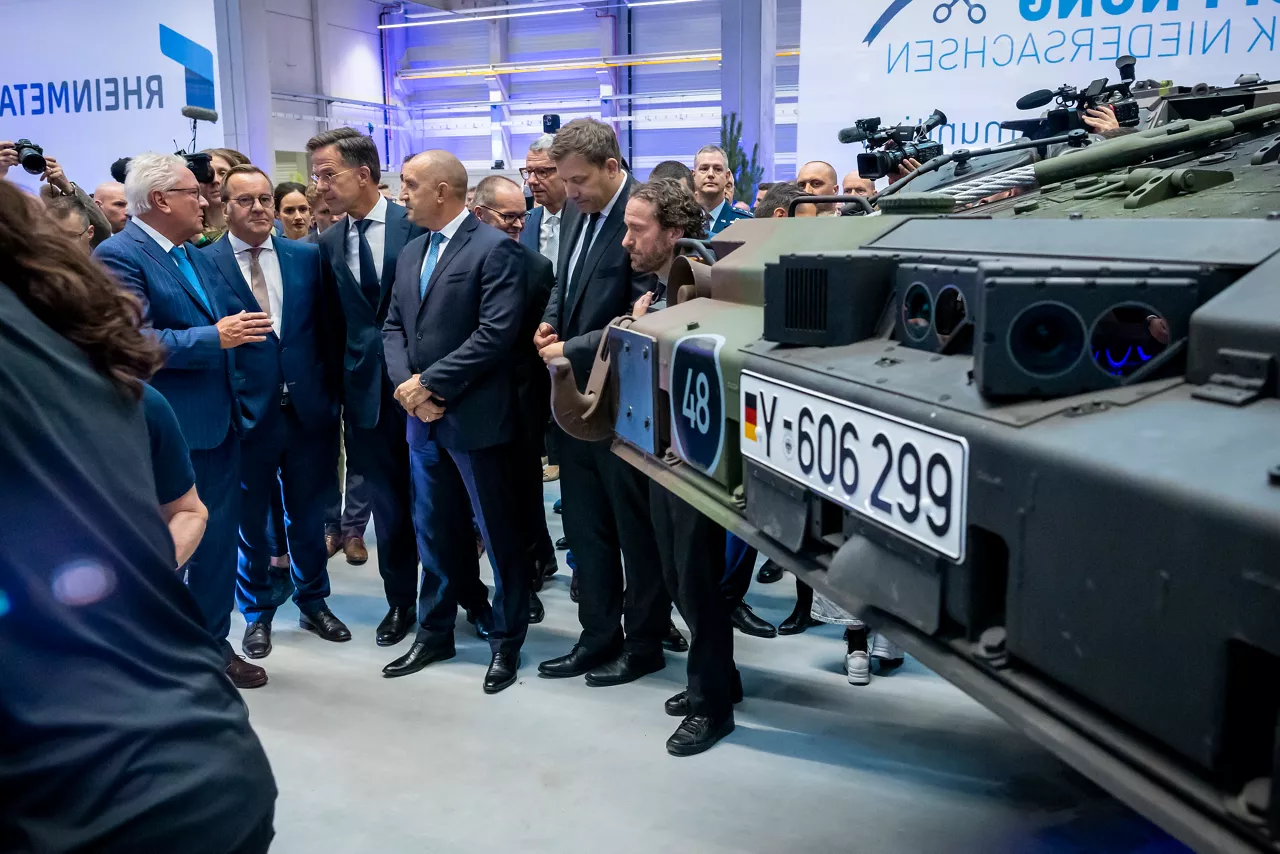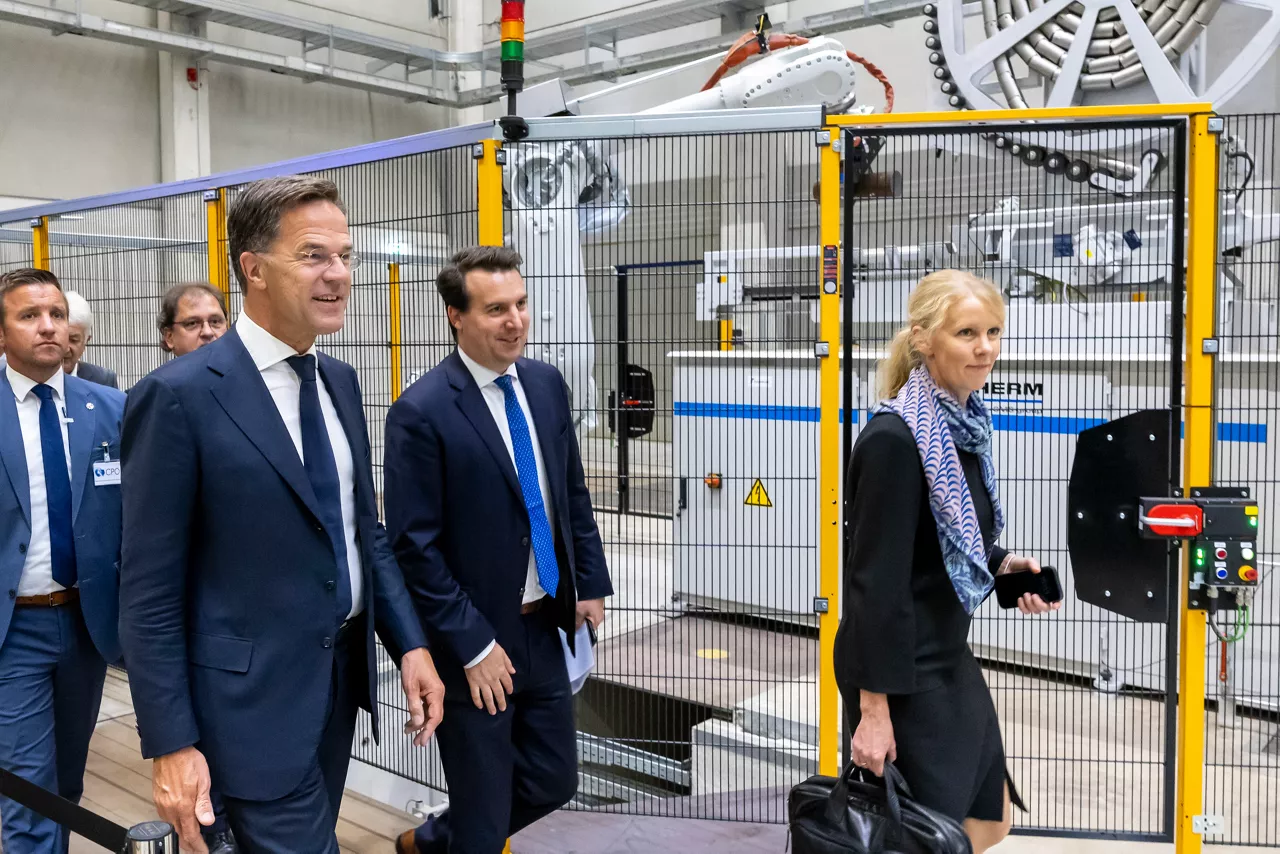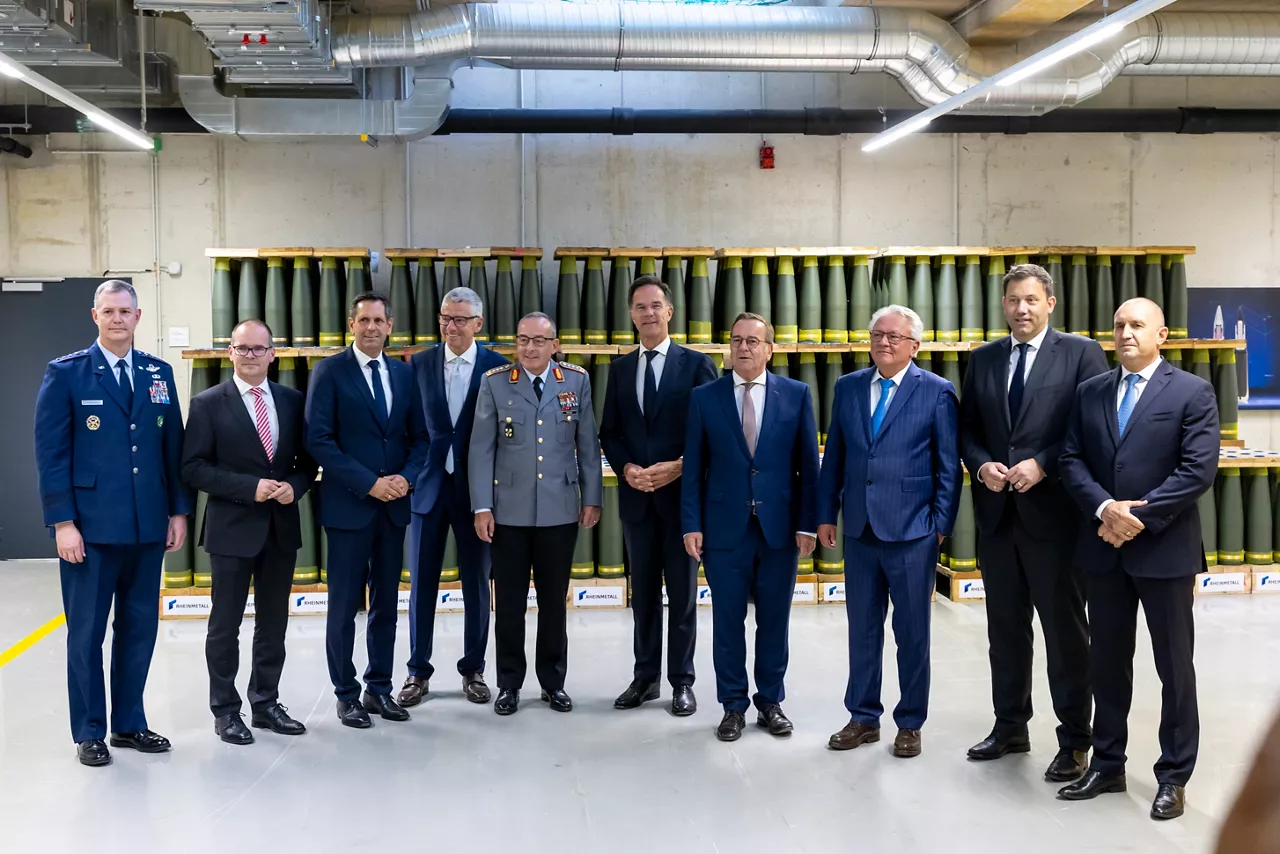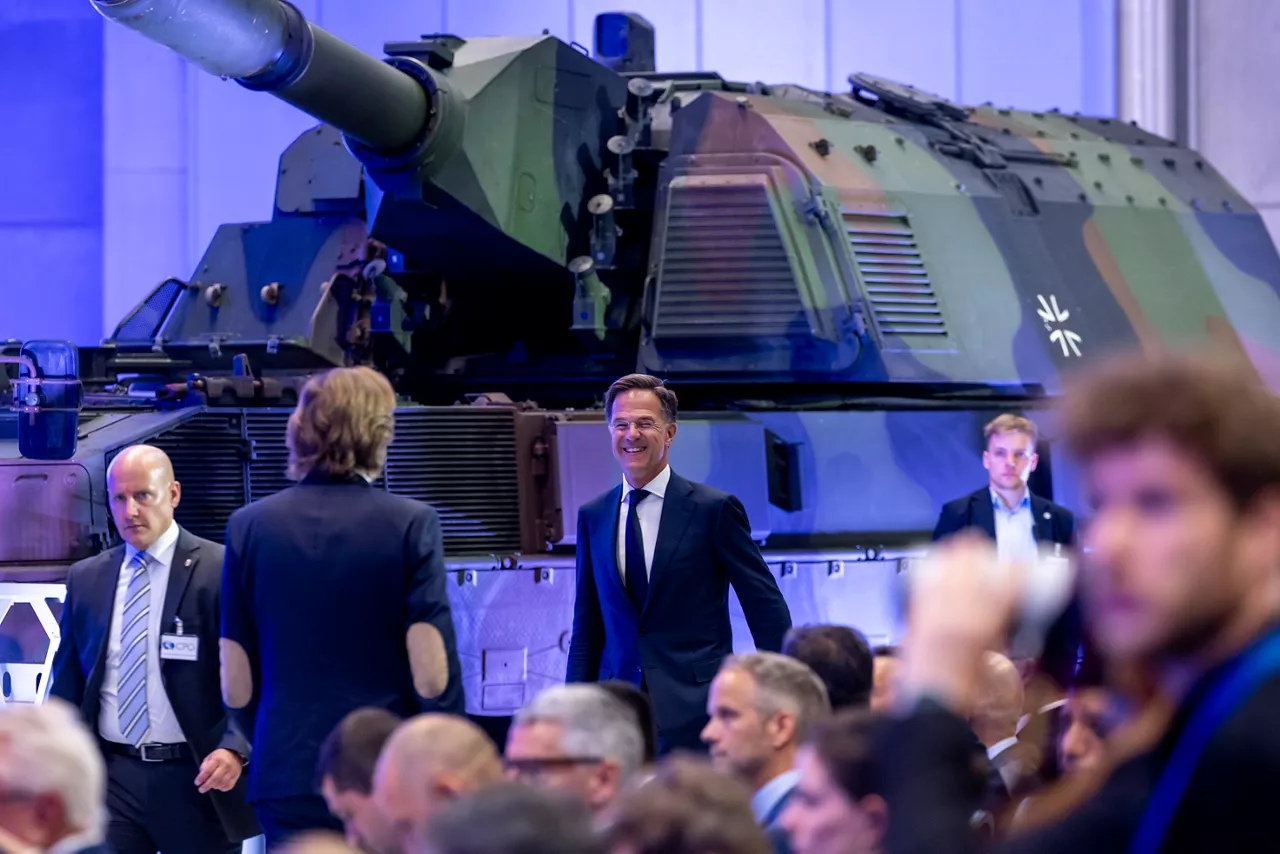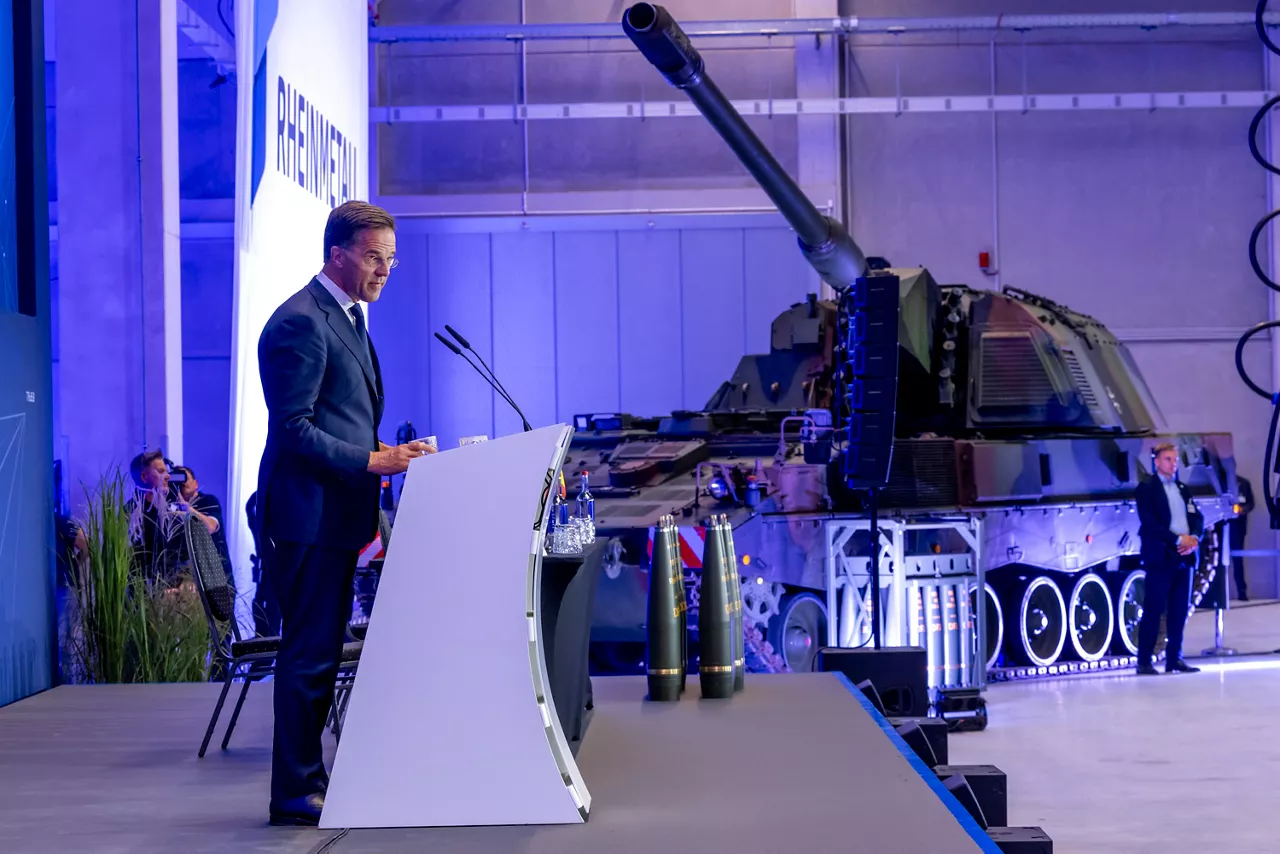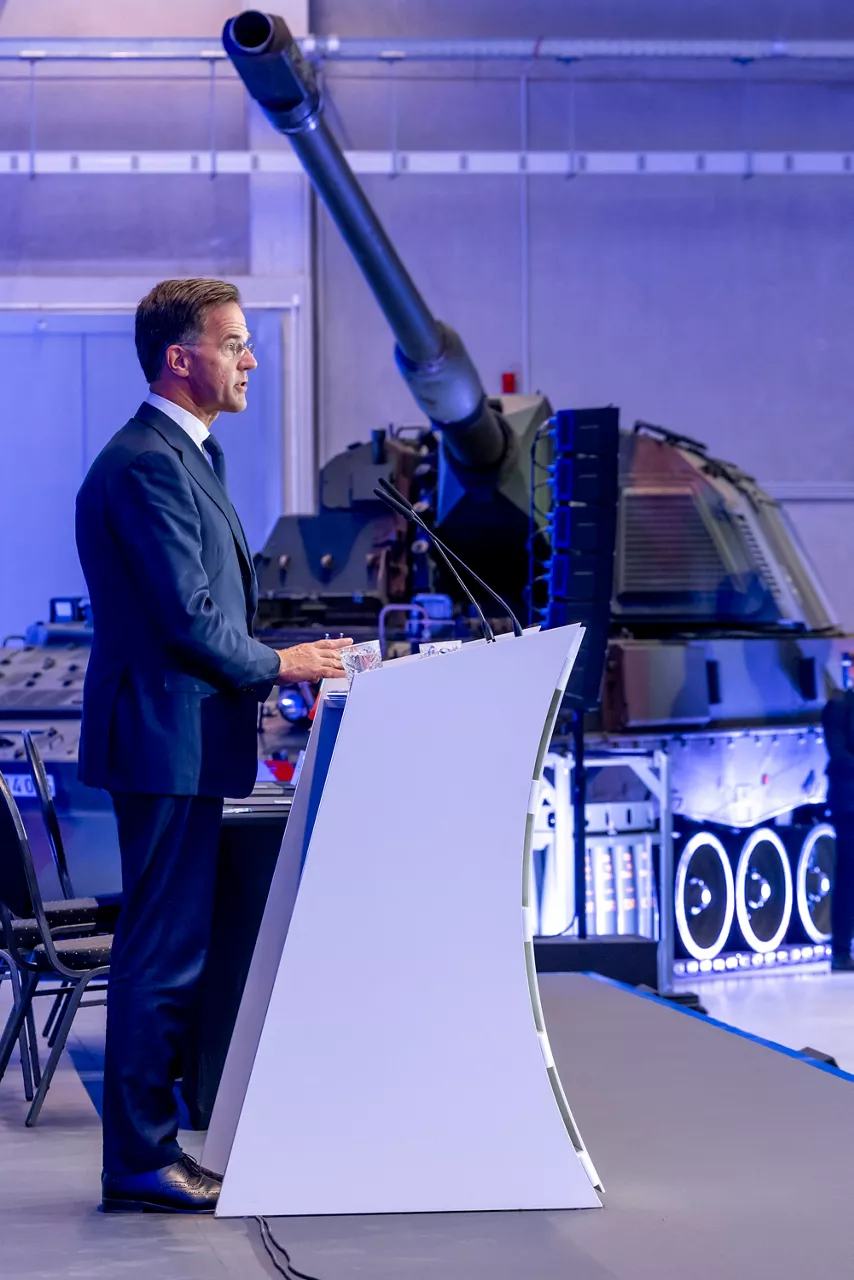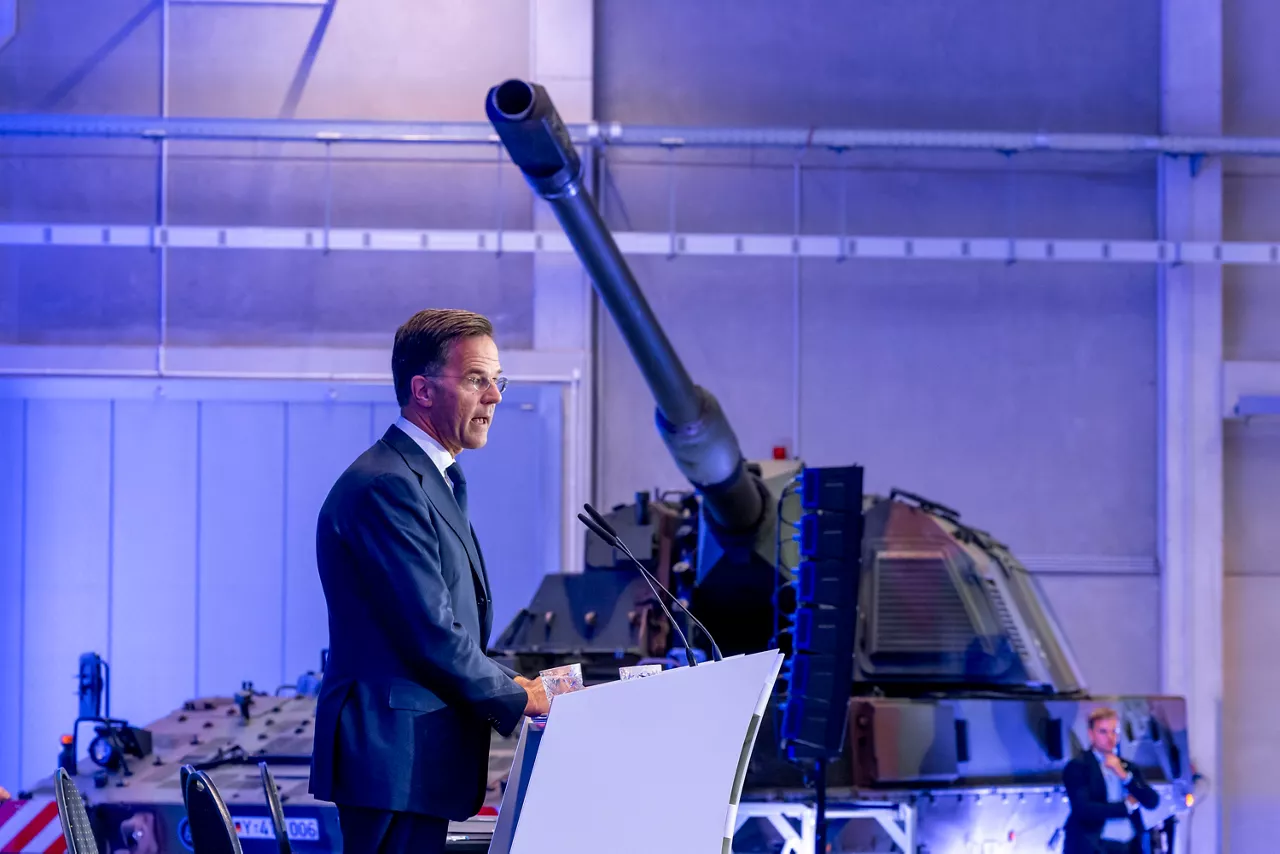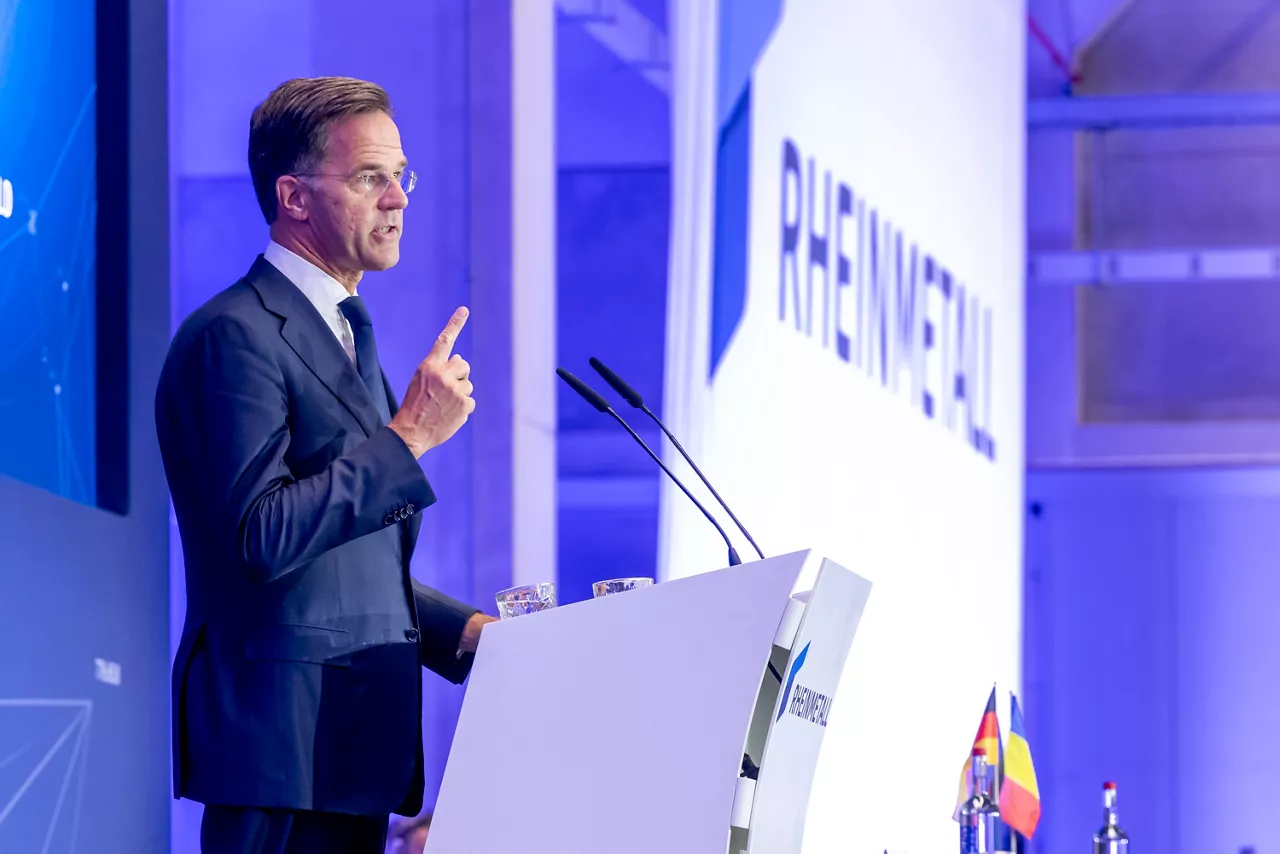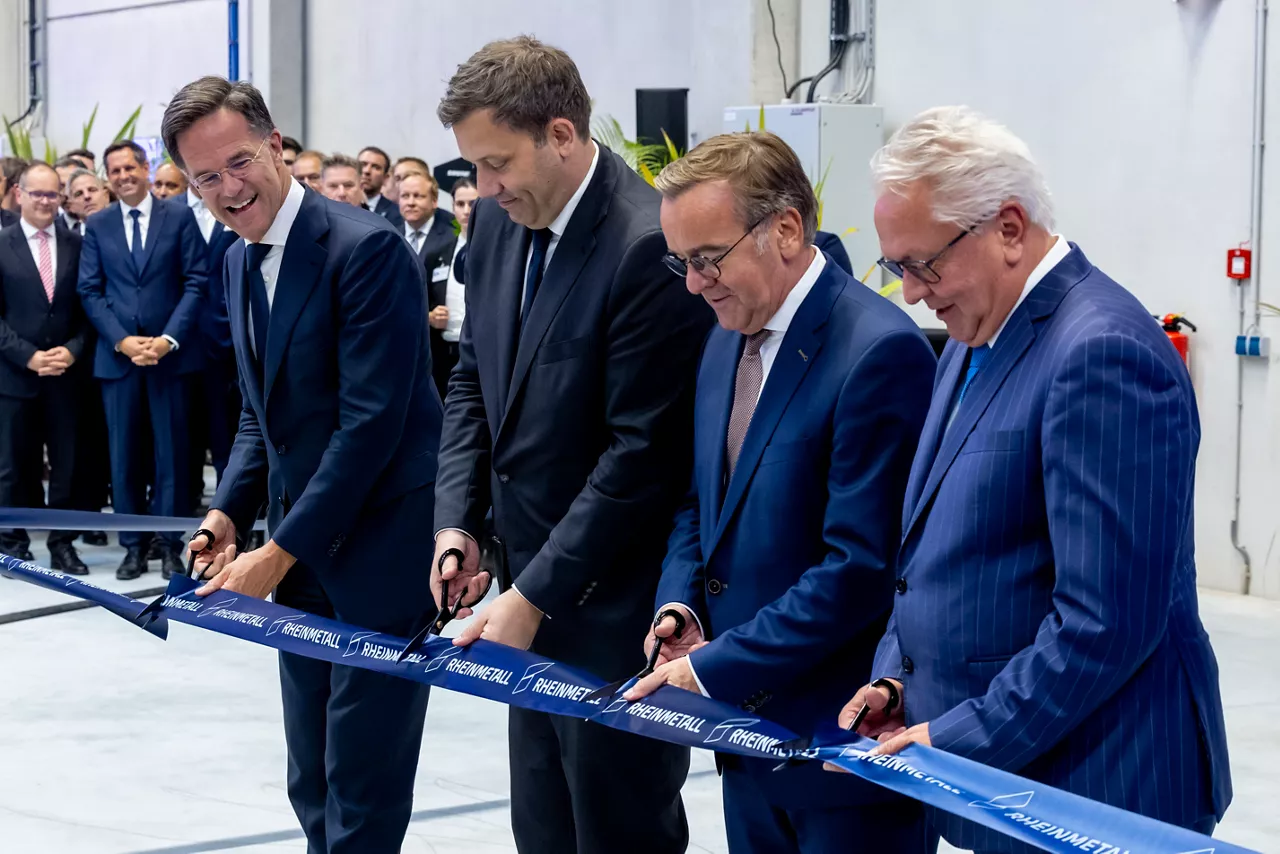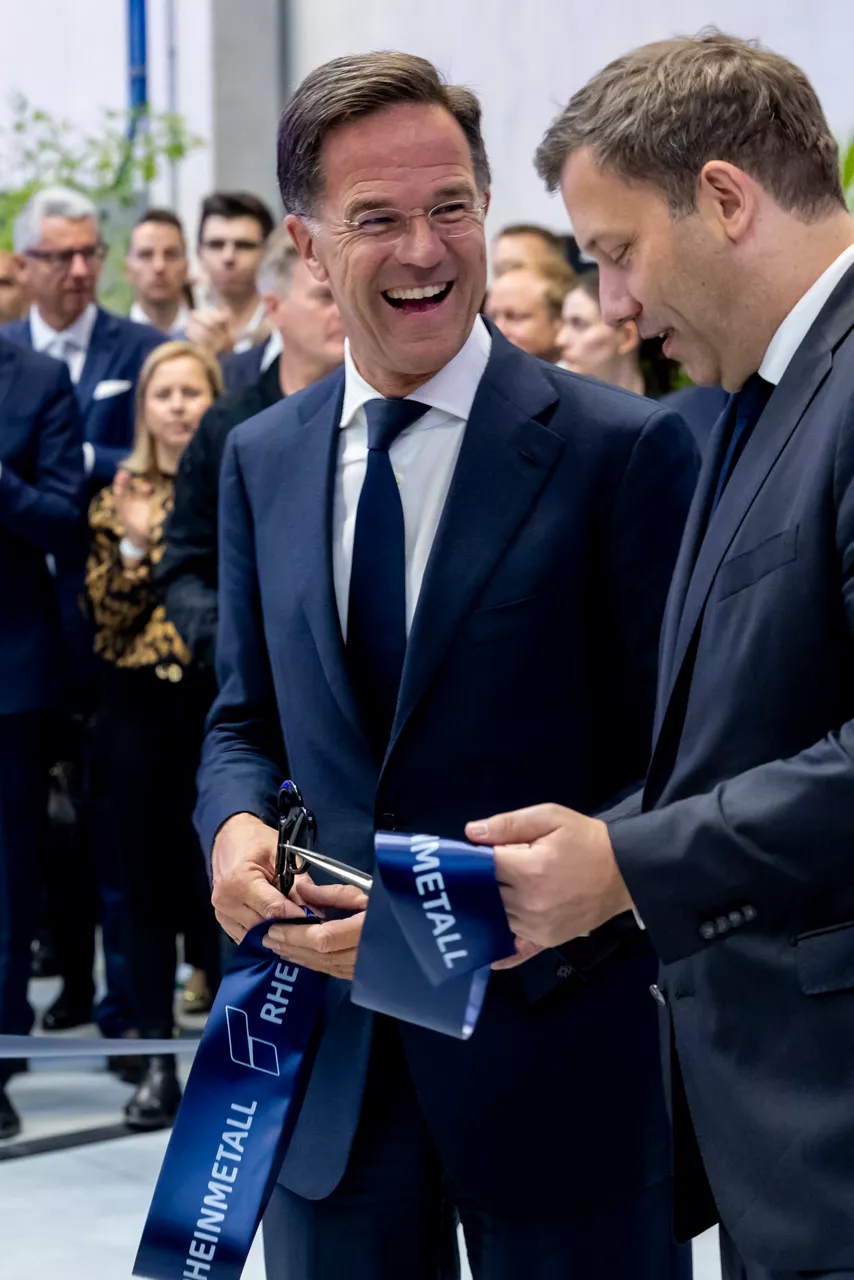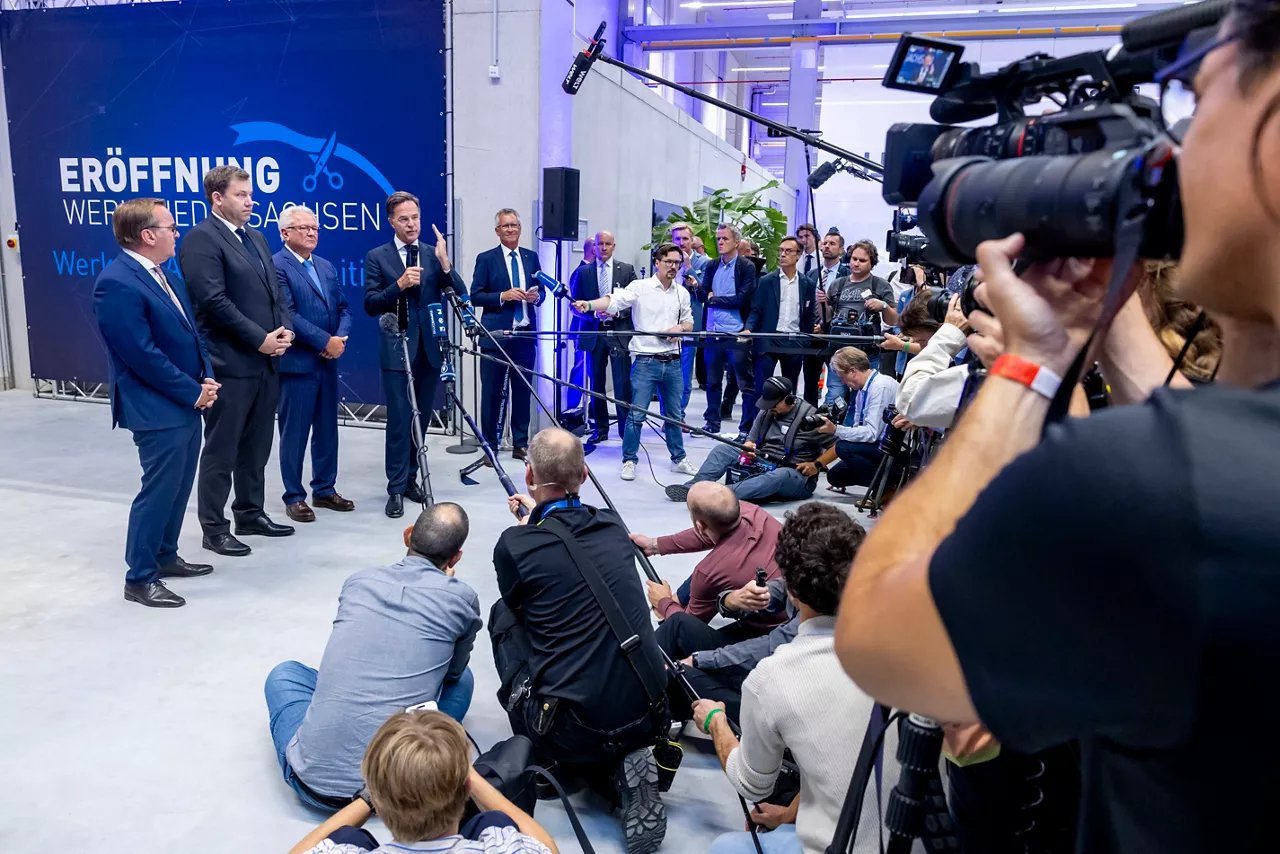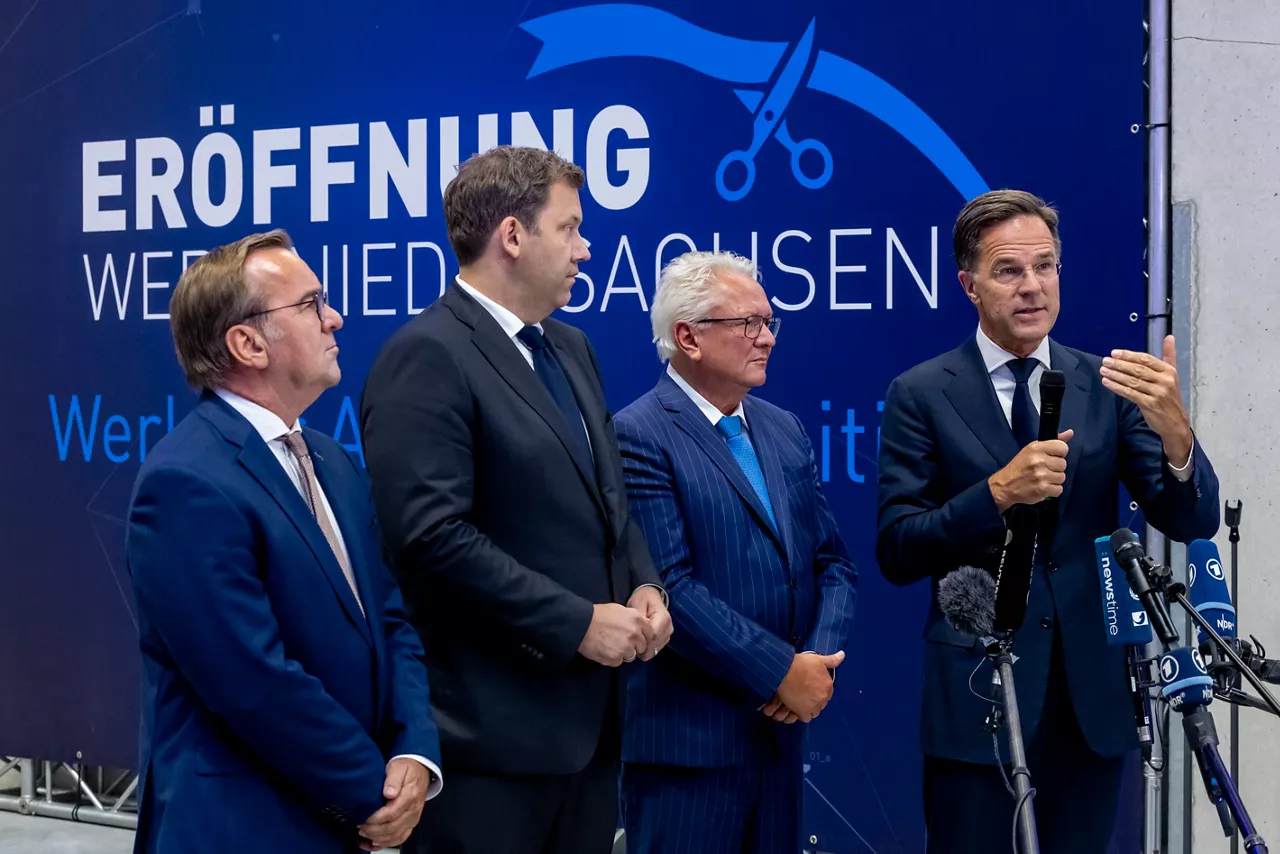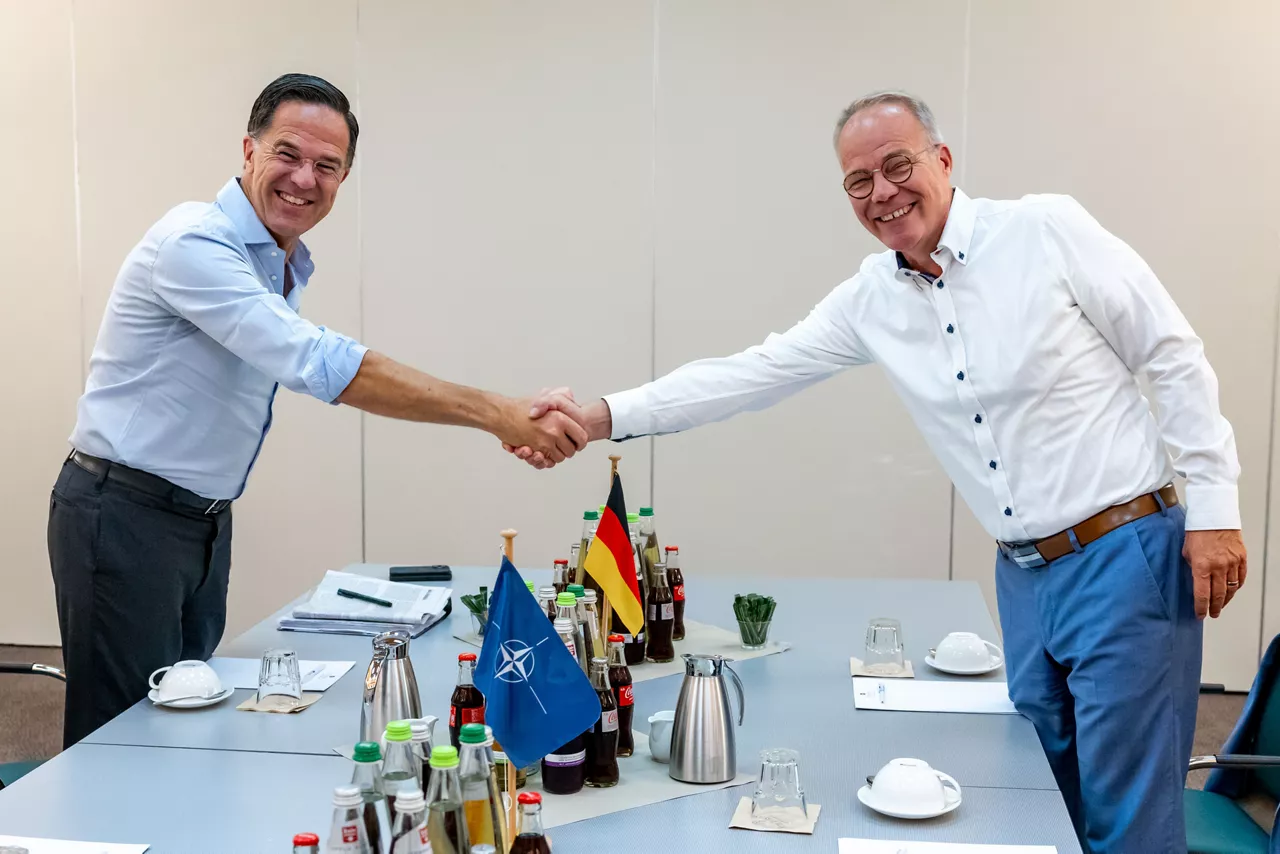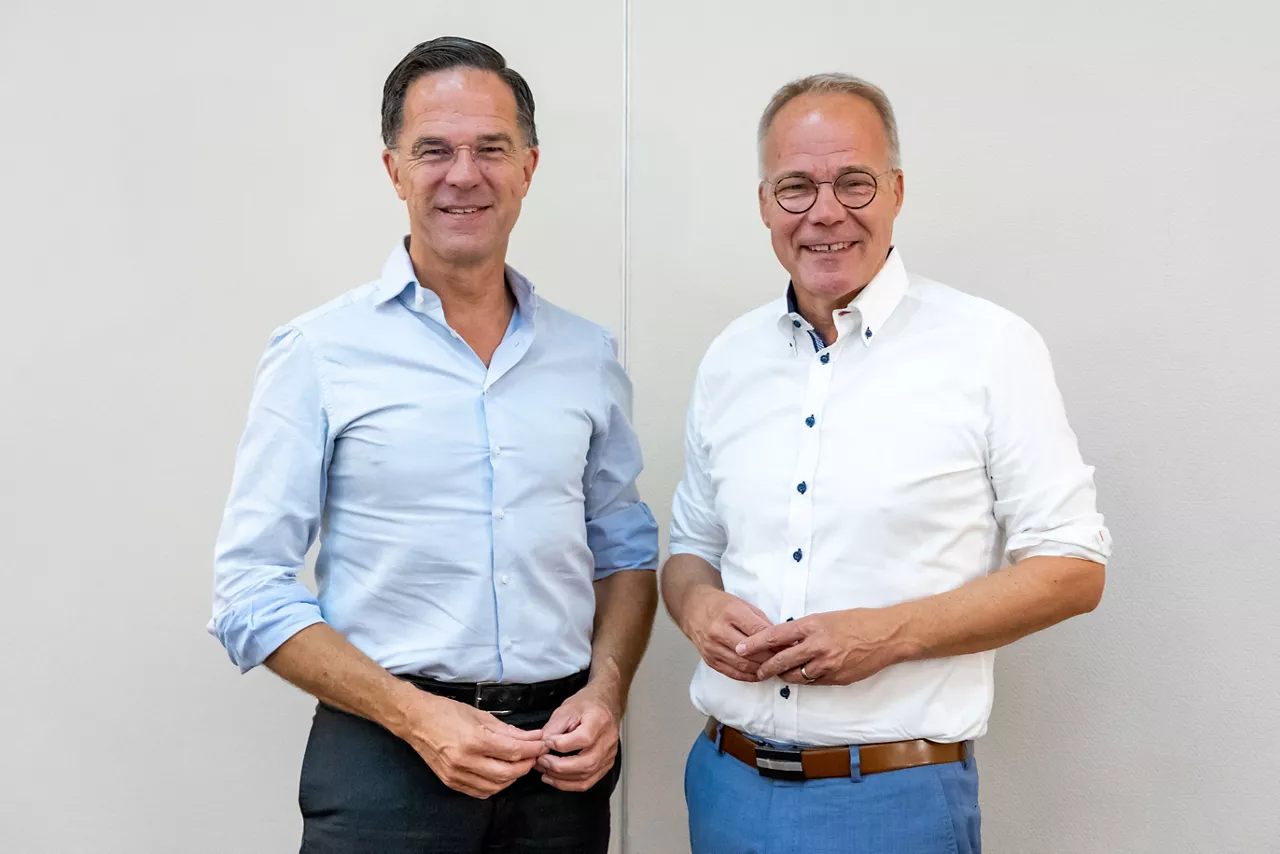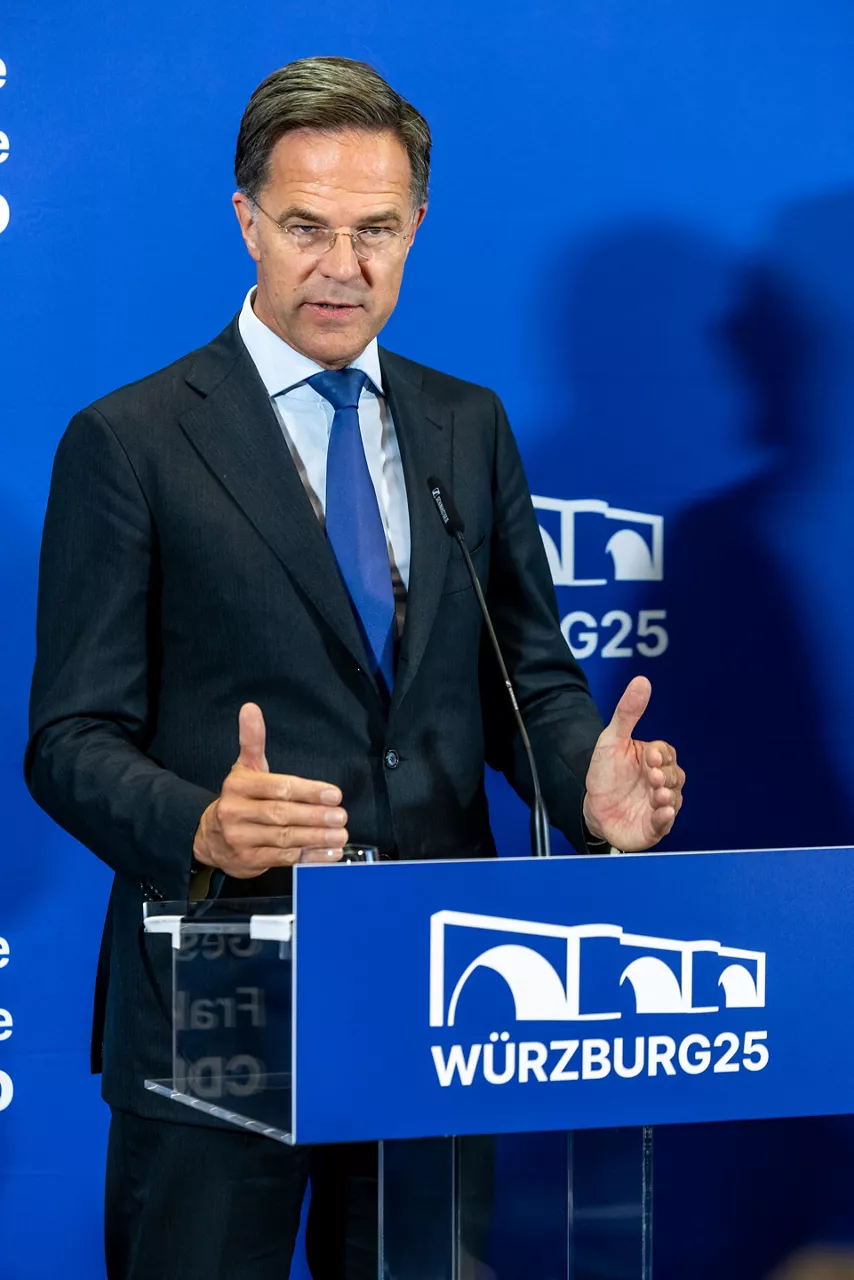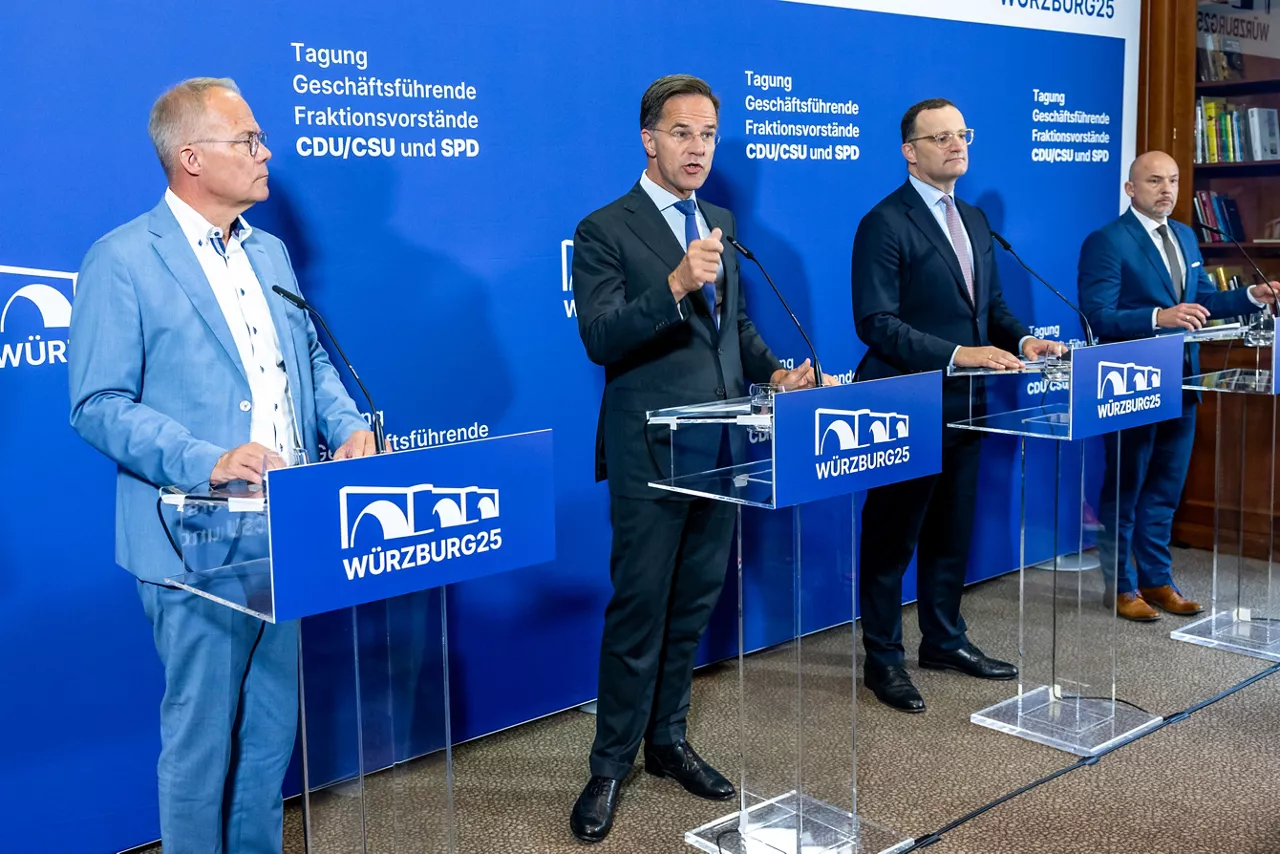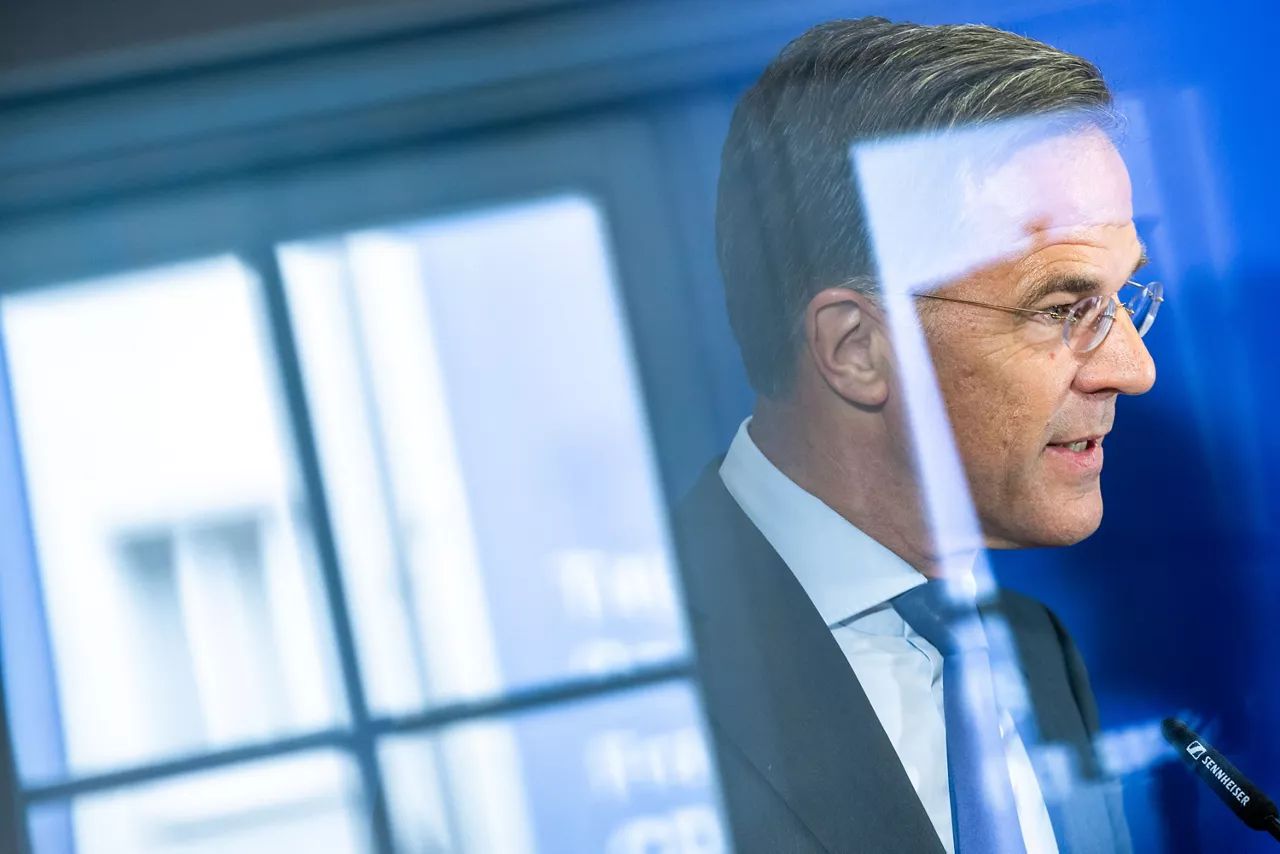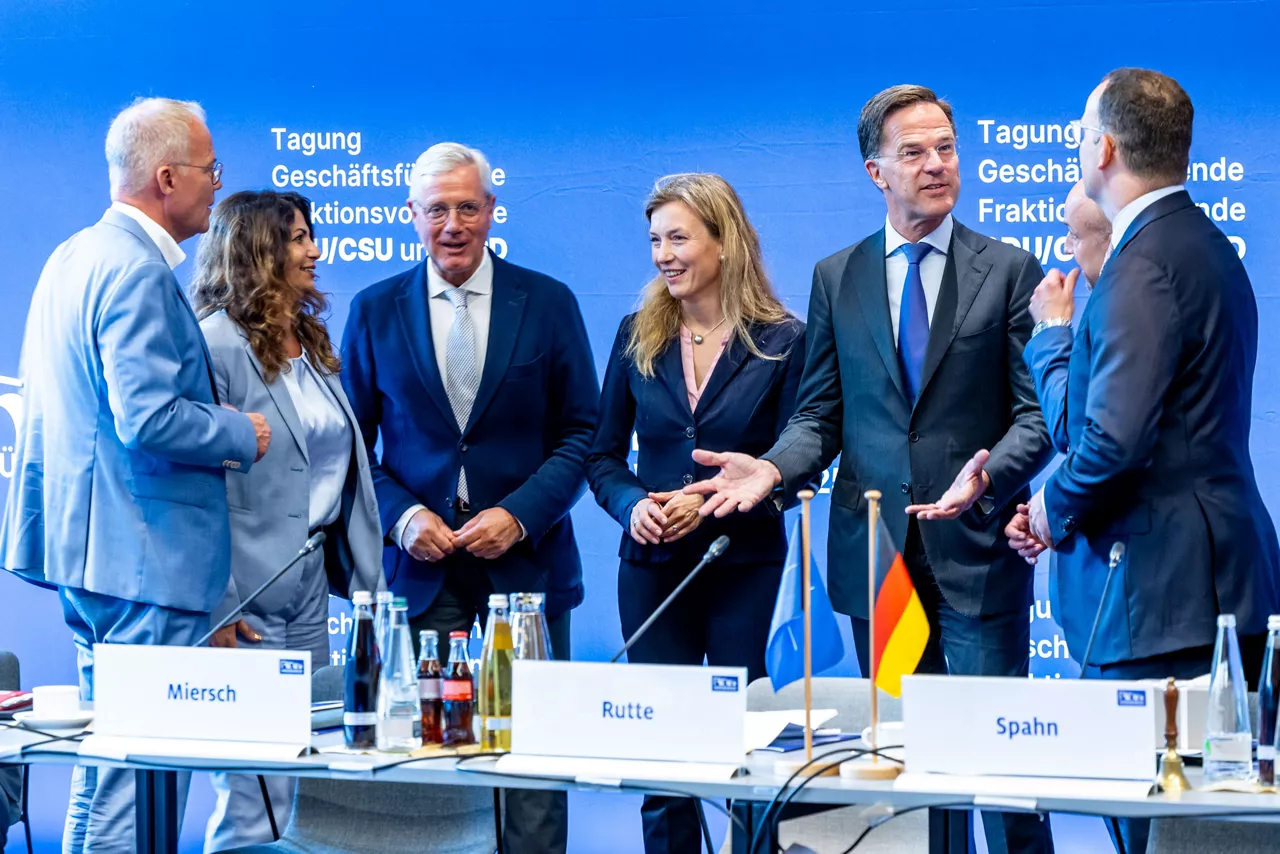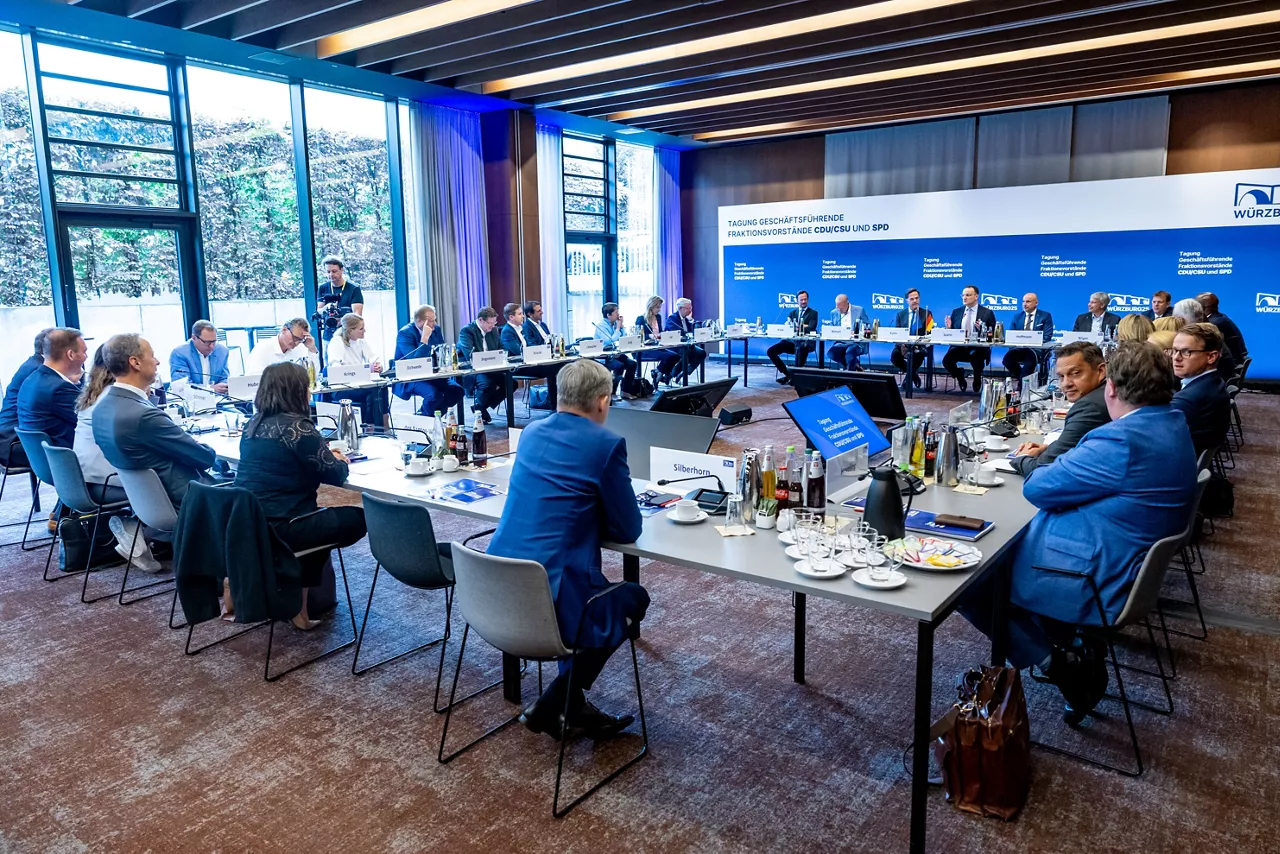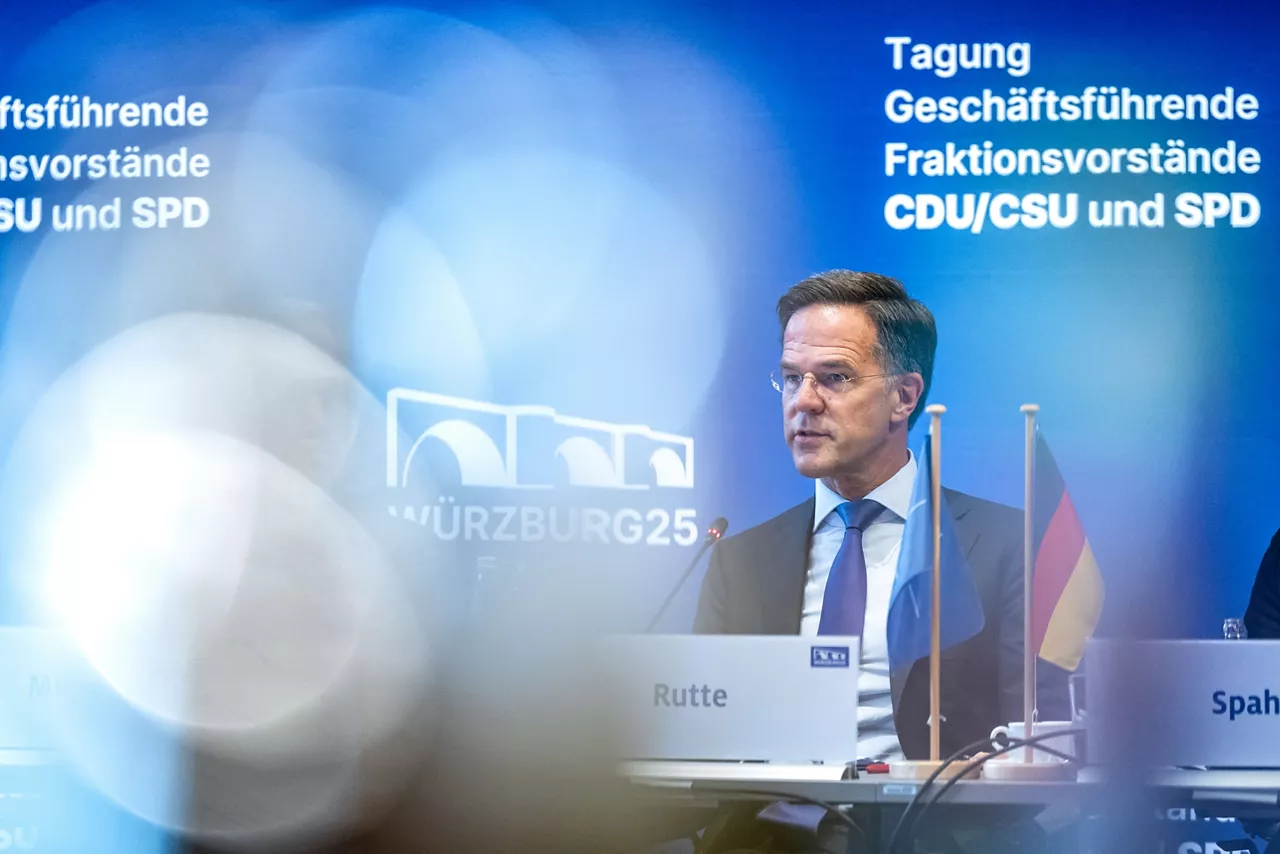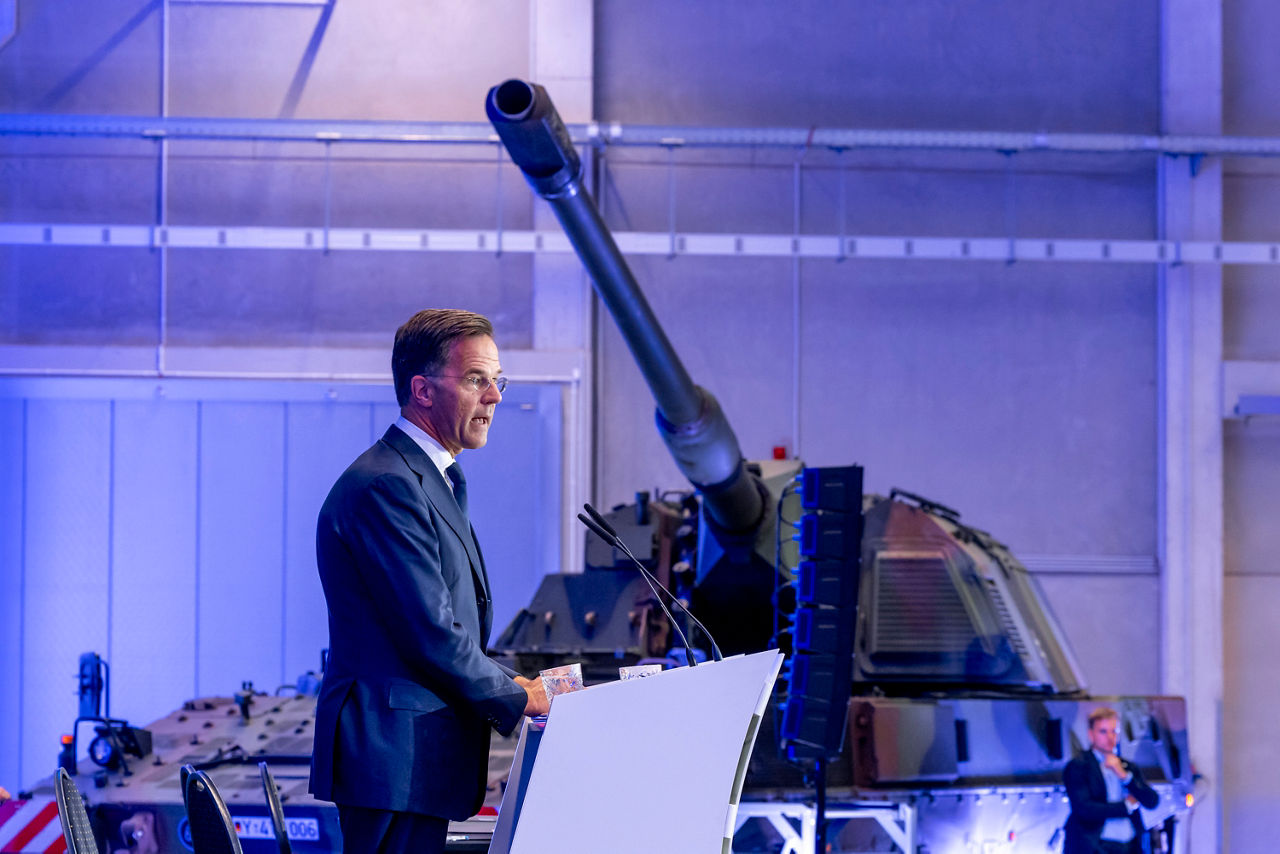Download NATO’s broadcast-quality video content free of charge

NATO MULTIMEDIA ACCOUNT
Access NATO’s broadcast-quality video content free of charge

Check your inbox and enter verification code
You have successfully created your account
From now on you can download videos from our website
Subscribe to our newsletter
If you would also like to subscribe to the newsletter and receive our latest updates, click on the button below.
Enter the email address you registered with and we will send you a code to reset your password.
Didn't receive a code? Send new Code
The password must be at least 12 characters long, no spaces, include upper/lowercase letters, numbers and symbols.
Your password has been updated
Click the button to return to the page you were on and log in with your new password.
Speech
by NATO Secretary General Mark Rutte at the Rheinmetall artillery plant in Unterlüß
27 August 2025
5 MIN READ
(As delivered)
Thank you, Mr Papperger – dear Armin.
Good to see you, Vice Chancellor Klingbeil – dear Lars.
Minister Pistorius – dear Boris.
Mr President – dear Rumen.
Prime Minister.
General Grynkewich – dear Grynch.
Excellencies, ladies and gentlemen,
Good afternoon.
This is one of my first public speeches since the NATO Summit in The Hague in late June.
And it means a lot to be giving it here.
In Germany.
At this new ‘Werk Niedersachsen’ factory.
I’m excited to visit today.
It means a lot to be here because the defence industry in Germany – and across Europe and North America – matters more than ever.
Ensuring we are strong and successful is an absolute priority for NATO.
And strong and successful is exactly what Rheinmetall is.
Congratulations to you personally Armin, and to all those people working in your fantastic company who have built this plant –
And ensured it’s up-and-running in record time.
I think you promised 12 months, and it was 14 months. But I don't think [Minister Pistorius,] Boris, you will hold that against them.
It's really staggering that you were able to pull this off.
And this is exactly what we need to ensure the prosperity and security of our economies and societies – across Europe and North America.
Especially at a time when we are aggressively being challenged.
Russia and China are expanding their militaries and their capabilities at speed and scale with little transparency.
Their defence industries are producing weapons and heavy military equipment at an incredible rate –
not just to show off at big parades in Moscow and Beijing,
but to secure spheres of influence, project power, and undermine the rules-based international order.
This year alone, Russia is expected to roll out at least 1,500 tanks, 3,000 armoured vehicles, and hundreds of Iskander missiles.
As for China, it already has the world’s largest navy, and some of the largest defence companies in the world.
Their military build-up points in a clear direction:
they are preparing for long-term confrontation and competition – with us.
So yes, we are being challenged.
But Europe and America together are on course to turn the tide on defence production.
And I say this confidently for two reasons.
First, because there is real cash on the table, and more will flow.
At the NATO Summit in The Hague now just two months ago, NATO leaders agreed a new plan to invest 5% of GDP in defence.
Germany has already announced that it plans to invest almost 153 billion in defence by 2029.
This is an impressive increase in just eight years.
It will more than double the overall defence spending by Germany in only eight years.
So Boris to you and the government and everybody in Germany, my heartfelt thanks for doing this.
Germany is taking a leadership role, and it has to. You are the biggest economy in Europe, but you are doing it.
And others will follow. We see that NATO Allies are also moving to invest a lot more in defence across Europe at the moment.
And that’s good.
But cash alone doesn’t provide security.
As Boris was saying, capabilities provide the security.
And this brings me to my second reason why I’m confident the tide is turning on defence production.
And that’s because there is real firepower and innovation coming out of our industries.
Across the Alliance, we have already expanded existing production lines and opened many new ones – like this one here in Unterlüß.
This is absolutely crucial for our own security, and also to keep supporting Ukraine in its fight today and to deter any aggression in the future.
At NATO, we have a clear and ambitious list of capability targets as I said.
It will be shared with industry, so you have a clear view of the Alliance’s rearmament plans.
Of course, we don’t fight with a list.
We fight with well-equipped and well-trained troops, who need ships, jets, tanks, drones, ammunition and more.
That’s what our defence industries across NATO must produce and deliver.
Faster than ever.
It’s part of our overall deterrence.
Deterrence doesn’t come from 5%.
Deterrence comes from the capability to indeed fight potential enemies.
And Rheinmetall is extremely important here.
When it comes to ammunition, this factory alone plans to produce as Armin said, 350,000 artillery shells a year.
This will come on top of what other Rheinmetall plants are producing.
This year, your plants in Germany, in Spain, in Hungary – and by the way also South Africa and Australia – aim to churn out 700,000 rounds of artillery ammunition.
So, we have come a long way.
Today, Europe’s annual capacity to produce artillery ammunition is six times bigger than just two years ago.
And it is expected to reach two million rounds by the end of this year.
And Rheinmetall accounts for a big part of this growth.
So every applause is warranted for you Armin and your people.
And this is for ammunition.
So now, on ammunition, we're doing better.
But now we need to see similar efforts to increase the production of more complex capabilities.
Like tanks, and air defence systems and missiles.
So sorry, no time to rest, which you don't like, rest, I know.
I’m not saying it’s easy. But it’s absolutely necessary for our security – now and in the future.
As I said earlier, the challenges we face are not going away any time soon.
To speed-up the production of much needed capabilities, we can build on our experience in ramping up the production of shells.
And we can learn from Ukraine’s innovative industrial mobilisation.
We need to restart some of our idle production lines,
develop faster manufacturing processes,
and buy the components…so that when the orders come in, they can be delivered faster.
At the same time, we need urgently to reduce our dependencies – not least on the critical raw materials that we source from far away.
And we need to do all this while keeping prices under control – sorry Armin –
so we can buy more and restock our arsenals.
This is the challenge of rearmament.
And it’s a battle we must – and will – win.
It matters for our security.
And it matters for our economic prosperity.
Increased defence production is an engine of economic growth.
Creating thousands of new jobs, including 500 here in Unterlüß.
So going forward, I urge you, at Rheinmetall and across the transatlantic defence industrial base, to keep production levels high.
Raise the bar even higher.
And seize the opportunities for doing more together across the entire Alliance and with our partners, like Ukraine.
That’s how we keep our defence capabilities supreme.
Our defence industries successful.
And NATO strong.
Thank you very much, and once again, congratulations on this important opening!
Related assets
NATO Secretary General Mark Rutte and CEO and President of Rheinmetall Armin Papperger
NATO Secretary General Mark Rutte and Supreme Allied Commander Europe (SACEUR) iGeneral Alexus G. Grynkewich
NATO Secretary General Mark Rutte, Minister of Defence of Germany Boris Pistorius, CEO and President of Rheinmetall Armin Papperger and Vice Chancellor of Germany Lars Klingbeil.
NATO Secretary General Mark Rutte, Minister of Defence of Germany Boris Pistorius, CEO and President of Rheinmetall Armin Papperger and Vice Chancellor of Germany Lars Klingbeil.
NATO Secretary General Mark Rutte
NATO Secretary General Mark Rutte
NATO Secretary General Mark Rutte
NATO Secretary General Mark Rutte
NATO Secretary General Mark Rutte
NATO Secretary General Mark Rutte
NATO Secretary General Mark Rutte
NATO Secretary General Mark Rutte, Minister of Defence of Germany Boris Pistorius, CEO and President of Rheinmetall Armin Papperger and Vice Chancellor of Germany Lars Klingbeil.
NATO Secretary General Mark Rutte, and Vice Chancellor of Germany Lars Klingbeil.
NATO Secretary General Mark Rutte, Minister of Defence of Germany Boris Pistorius, CEO and President of Rheinmetall Armin Papperger and Vice Chancellor of Germany Lars Klingbeil.
NATO Secretary General Mark Rutte, Minister of Defence of Germany Boris Pistorius, CEO and President of Rheinmetall Armin Papperger and Vice Chancellor of Germany Lars Klingbeil.
NATO Secretary General Mark Rutte meets with Matthias Miersch, Chair of the Social Democratic Party
NATO Secretary General Mark Rutte meets with Matthias Miersch, Chair of the Social Democratic Party
NATO Secretary General Mark Rutte speaks at the Würzburg25 conference
NATO Secretary General Mark Rutte speaks at the Würzburg25 conference
NATO Secretary General Mark Rutte speaks at the Würzburg25 conference
NATO Secretary General Mark Rutte speaks at the Würzburg25 conference
NATO Secretary General Mark Rutte speaks at the Würzburg25 conference
NATO Secretary General Mark Rutte speaks at the Würzburg25 conference
GALLERIES
NATO Secretary General visits Germany


NATO Secretary General visits Germany
Speech by the NATO Secretary General at the Rheinmetall artillery plant
Usage rights
CLOSE
This media asset is free for editorial broadcast, print, online and radio use. It is restricted for use for other purposes.
NATO Secretary General visits Germany
NATO Secretary General visits the Rheinmetall artillery plant in Unterlüß (B-roll)
Usage rights
CLOSE
This media asset is free for editorial broadcast, print, online and radio use. It is restricted for use for other purposes.
TITLE
DATE
DURATION
Speech by NATO Secretary General Mark Rutte at the Rheinmetall artillery plant in Unterlüß
Speech by NATO Secretary General Mark Rutte at the Rheinmetall artillery plant in Unterlüß

